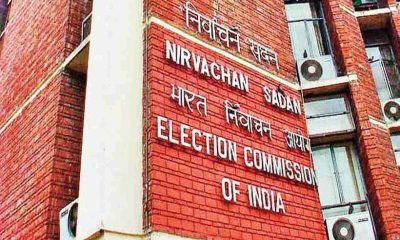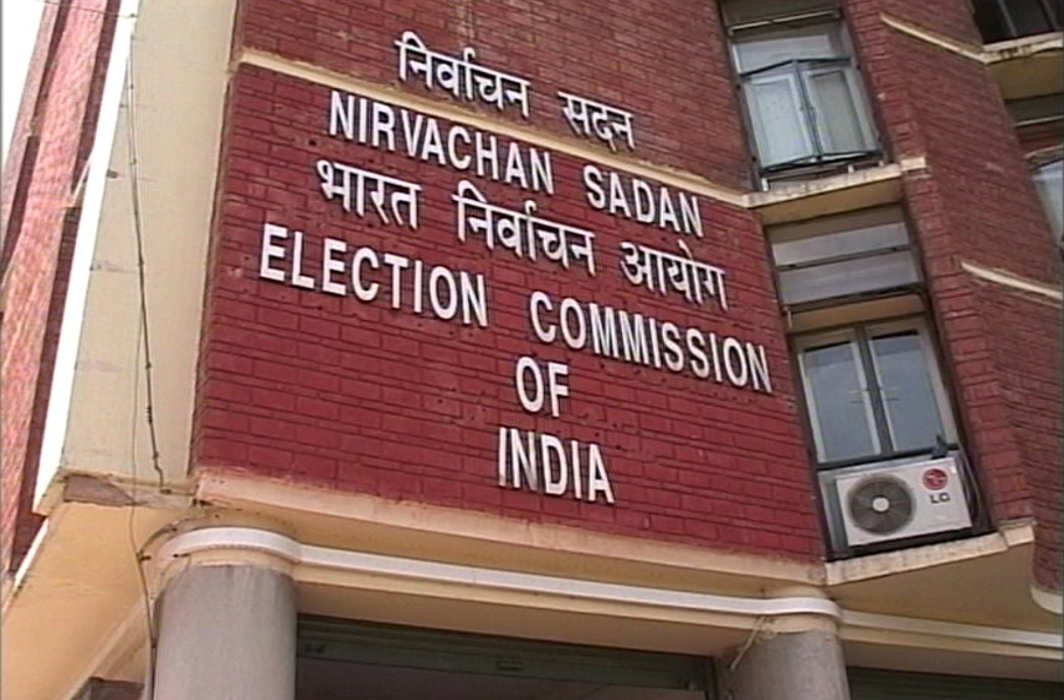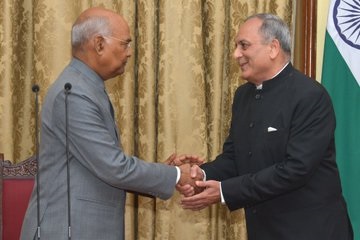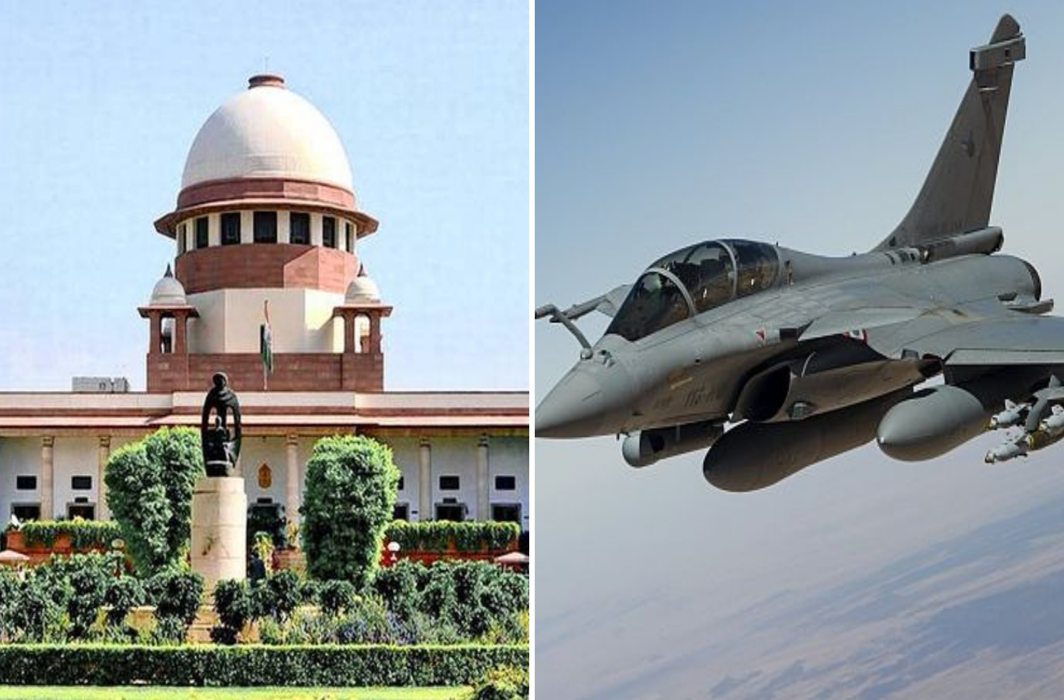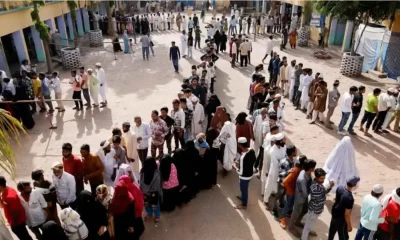India News
RTI Act amendment: Former information commissioners, activists criticise government move

[vc_row][vc_column][vc_column_text]A number of former information commissioners and RTI activists have come out strongly against the move by the central government to amend the Right to Information Act, 2005, saying it will reduce the law to “another toothless tiger”.
The move allows the government to fix the term of service of the information commissioners and their salaries.
The RTI Act, enacted in 2005, defined both the time of service and the status of information commissioners. It lays down that information commissioners — both state and central — will have a tenure of five years or till they attain the age of 65 years (whichever comes first).
The salaries of the central information commissioners were kept equivalent to that of the chief election commission while those of state information commissioners equivalent to the chief secretary of the state.
The Right to Information (Amendment) Bill, 2019, which was introduced in the Lok Sabha on Friday, July 20, does away with both the tenure and salary structure of information commissioners and gives the central government carte blanche in deciding both.
Once appointed, information commissioners, by virtue of the fixed tenure, could not be removed by the Governor or the President except in cases of moral turpitude or insanity. RTI activists said by removing this clause, information commissioners will be left to the whims and fancies of the government.
The amendments are being viewed as implying that, in effect, the terms of appointment, salaries and tenures of the Chief Information Commissioners and Information Commissioners can be decided on a case-to-case basis by the government.
The Opposition has argued that this will take away the independence of the RTI authorities. Congress Leader in Lok Sabha Adhir Ranjan Chowdhury said the Bill is a “threat to the independence” of the Central Information Commissioner, while Shashi Tharoor called it an “RTI elimination Bill” that removes the organisation’s independence. Members of the Trinamool Congress, DMK and AIMIM, too, protested.
The government had tried to introduce the amendments last year too, but had to withdraw the Bill because of protests from the Opposition.
The Bill amends Sections 13 and 16 of the Right to Information (RTI) Act, 2005 which deal with the term and salaries of the Chief Information Commissioner and Information Commissioners at the centre and state level respectively. The Sections originally set their term at five years (or until the age of 65, whichever is earlier). The amendment proposes that the appointment will be “for such term as may be prescribed by the Central Government”.
Again, the original Sections stated that salaries, allowances and other terms of service of “the Chief Information Commissioner shall be the same as that of the Chief Election Commissioner”, and those of an Information Commissioner “shall be the same as that of an Election Commissioner”. The amendment proposes that the salaries, allowances and other terms of service of the Chief Information Commissioner and the Information Commissioners “shall be such as may be prescribed by the Central Government”.
The statement of objects of the amendment Bill says “the mandate of Election Commission of India and Central and State Information Commissions are different. Hence, their status and service conditions need to be rationalised accordingly”. While introducing the Amendment Bill, Minister of State in the PMO Jitendra Singh said, “Probably, the then government of the day, in a hurry to pass the RTI Act, 2005, overlooked a lot of things. The Central Information Commissioner has been given the status of a Supreme Court judge but his judgments can be challenged in the High Courts. How can that exist? Besides, the RTI Act did not give the government rule-making powers. We are merely correcting these through the amendment.”
The Bill leading to the original Act had been discussed by the Parliamentary Committee on Personnel, Public Grievances, Law and Justice, which included then BJP members Ram Nath Kovind (now the President), Balavant Apte, and Ram Jethmalani. Originally, the salaries of the Chief Information Commissioners were proposed to be equivalent to those of Secretaries to the Government of India, and the salaries of the Information Commissioners were to be equivalent to those of Additional Secretaries or Joint Secretaries to the Union government. The Parliamentary Committee headed by E M S Natchiappan submitted its report in 2005 and said, “The Committee feels that… it will be desirable to confer on the Information Commissioner (the designation was later renamed CIC) and Deputy Information Commissioners (now ICs), status of the Chief Election Commissioner and the Election Commissioner, respectively. The Committee, accordingly, recommends insertion of a suitable provision in the clause to this effect.”
While introducing the Bill, the government had cited that as orders of the information commissioners are open for challenge in high courts, equivalence of the information commissioners to the judges of high court was not right.
RTI activist Vijay Kumbhar dismissed the arguments of the central government as weak. A report in The Indian Express quoted him as saying: “Back in 2018, the salary structures of 19 quasi judicial administrative commissions were brought on par with that of Supreme Court and High Court judges. Interestingly, salaries of the judges were hiked six months after that. Why were the information commissioners left out then?”
The orders of the various quasi judicial bodies, Kumbhar said, could be challenged in lower courts. “So, the government’s argument about the applicability of the salary structure of high courts to information commissioners does not stand,” he added.
RTI activists are planning to legally challenge the move.
Pune-based activist Qaneez Sukhrani slammed the move as another attempt by the government to control the RTI Act. “This first amendment will give the government further chance to amend the law,” she said.
Former CIC Shailesh Gandhi told The Hindu that the NDA government has offered no plausible reason as to why it is making these changes nor was there any pre-legislative consultation.
“The proposed changes to the RTI Act were introduced in complete secrecy without any public disclosure and consultation on draft legislations. The implication is the Centre wants to control the CIC and downgrade the function of State information commissioners (SICs), and that appointments of information commissioners are to be henceforth dictated by political patronage,” Gandhi said.
He said if the amendments were effected, it would weaken democratic institutions as the RTI Act thus far has proved to be the strongest and most effective tool ordinary citizens possess to hold accountable the powers that be.
In a release rejecting the amendments introduced by the NDA government, the National Campaign for Peoples’ Right to Information (NCPRI) demanded that they be withdrawn with immediate effect. “The contents of the draft amendments were not known to MPs, citizens, and the media till the Bill was circulated to members of the Lok Sabha on the eve of its introduction. The Bill seeks to amend the RTI Act to empower the Centre to unilaterally decide the tenure, salary, allowances and other terms of service of information commissioners at the Centre and in the States. The NDA government has done so by wilfully misrepresenting an amendment to a basic feature of the law, as a function of rule-making,” the release said.
It further said the RTI Act provides for a fixed tenure of five years for information commissioners (subject to the age limit of 65 years). “The salaries, allowances, and other terms of service of the chief of the Central Information Commission are the same as that of the Chief Election Commissioner. This is part of the basic structure of the existing law and therefore any amendment to these provisions undermines the basic structure of the RTI.”
Accusing the Central government of usurping the power to decide the tenure, salaries and allowances of SICs, it said the move indicates “the current government’s centralised, and undemocratic decision making.”
The NCPRI accused the Centre of instead sidelining a “wide array of pressing issues” that require the urgent government attention to ensure effective implementation of the RTI Act. These include making time-bound and transparent appointments to fill vacancies in information commissions, addressing the issue of attacks on RTI activists, implementing the Whistle Blowers Protection Act, and addressing the lack of transparency in electoral funding.[/vc_column_text][/vc_column][/vc_row]
2024 Lok Sabha Elections
Lok Sabha Elections: Voter turnout 62.02% in Tamil Nadu till 5pm
The voter turnout in Tamil Nadu stands at 62.02%, while Uttar Pradesh records a turnout of 57.5%. Meanwhile, in West Bengal, voter participation surges to 77.5% as of 5 pm.
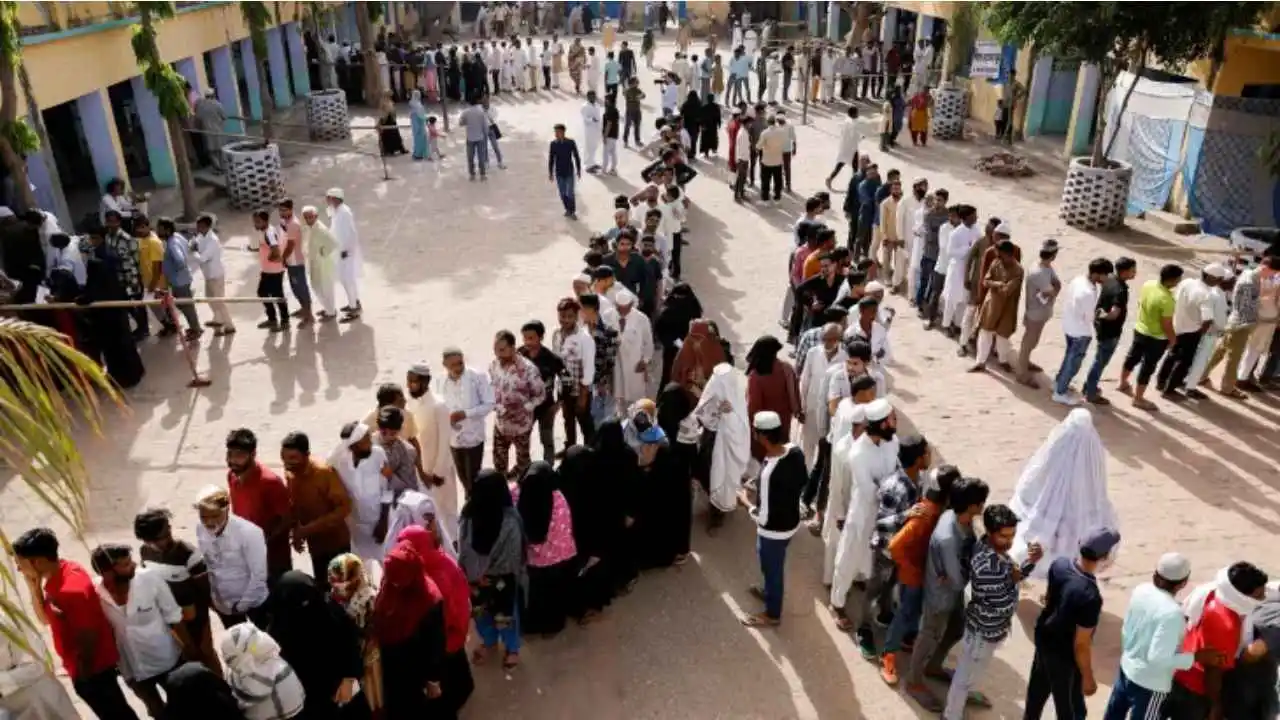
The Lok Sabha elections 2024 began today, marking the onset of the world’s largest electoral event. Voting ended in all 39 Lok Sabha constituencies in Tamil Nadu with a total voter turnout of 62.02%. State BJP chief and Coimbatore Lok Sabha constituency candidate K Annamalai said, they were getting complaints from a large number of voters that their names were missing from the voters’ list.
This incident happened in many places. Annamalai said they are demanding re-poll in places where the names of a large number of voters were missing.He said they had a doubt that there was some political interference because the names of a large number of BJP caders were missing from the voters list.
The voters in South Chennai showed lukewarm interest to participate in the election process and had a total voter turnout of 57.04% till 5pm. Although the overall percentage is poor, some areas like Thiruvanmiyur witnessed brisk polling from 7am onwards. Elderly, middle aged and young voters turned up and it was a family outing for many as they cast their vote.
Corporation volunteers assisted senior citizens with wheelchairs and guided them to their respective polling booths. The hot weather also had an impact on the polling as it reduced the voter turnout as many booths in the corporation school in MGR Nagar were seen deserted around noon. Senior citizens showed courage as they reached the polling booths in private vehicles to exercise their franchise.
Most of the polling booths had shamianas for voters so that they could wait in a queue. Some people even found refuge in the nearby buildings to save themselves from the scorching heat. The polling officials gave instructions to the voters to keep their phones switched off while they exercised their franchise. The security personnel at the polling booth also regulated traffic outside the polling booth in MGR Nagar.
2024 Lok Sabha Elections
Deserted by key supporters, the Kamal Nath story looks set to wind to an end in Chhindwara
Nath’s closest allies in his near 50-year reign—Deepak Saxena and Kamlesh Shah—have deserted him. His local team of corporators has also decided to jump ship leaving a gaping hole in Nath’s campaign trail.
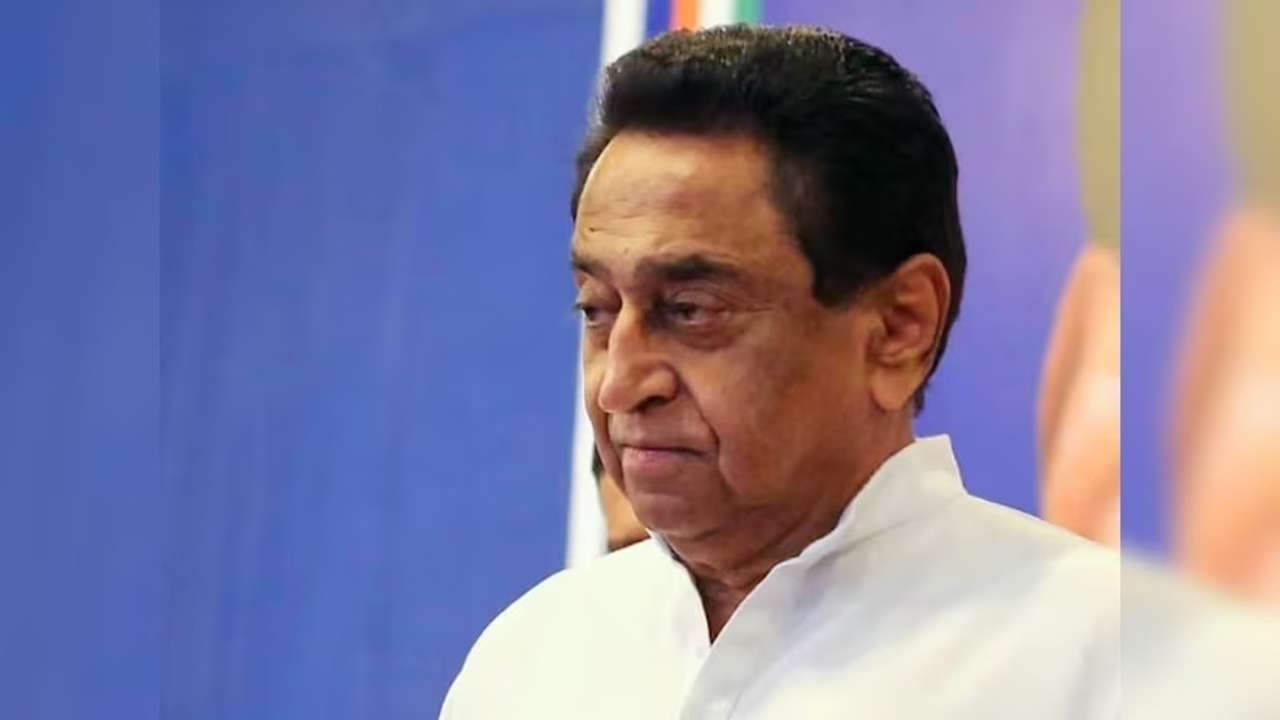
By Neeraj Mishra
The Congress has lost Chhindwara only once since Independence when the wily Sunderlal Patwa was sent there by Atal Bihari Vajpayee to test Kamal Nath’s hold on the constituency. Patwa won the 1997 by-election by a slim margin in the backdrop of Nath having forced his wife to first contest and later vacate the seat for him. Nath, however, returned to his winning ways the very next year and has won the seat nine times.
It seems possible that Chhindwara, the lone surviving Congress seat, will be lost again this time and may be forever. A day ahead of polling, the town was drowned in saffron. Not so much the effect of vigorous campaigning by Vivek Sahu of the BJP but the Ram Navami festival which brought out saffron flags on every rooftop. The effect is likely to last since the polling is today. At 77, Nath is unlikely to contest another election here and his son Nakul seems like a pale shadow of his father unable to even make a forceful speech. The days of running Chhindwara from Shikarpur kothi are gone.
Nath’s closest allies in his near 50-year reign—Deepak Saxena and Kamlesh Shah—have deserted him. His local team of corporators has also decided to jump ship leaving a gaping hole in Nath’s campaign trail. Nakul had won by a margin of 37,000 votes in 2019 and the biggest lead had come from Kamlesh’s Amarwada Assembly segment. With Saxena in control of Chhindwara and forced to show his strength in his new party, it is highly likely that Nakul will not be depending on these segments. Instead, the Congress campaign was focused on Pandhurna, Parasia and Chaurai.
Amit Shah was in the region a couple of days ago and warned all BJP workers—old and new—against lethargy. His message was clear, the BJP wants all 29 seats this time. Cabinet Minister Kailash Vijayvargiya is camped here and using all his political acumen for the desired results. One such tactic was to raid the Shikarpur Kothi of Kamal Nath for his assistant Miglani who handles almost everything for him. With Miglani temporarily neutralised, BJP is best placed to repeat its win in Chhindwara in 1997.
2024 Lok Sabha Elections
Lok Sabha Elections 2024: Nearly 40% voter turnout till 1pm
Chennai recorded an average voter turnout of 34% as of 1 pm on Friday. According data released by the Election Commission of India, Chennai (North) recorded 35%, Chennai (Central) recorded 32.3% and Chennai (South) recorded 34%.
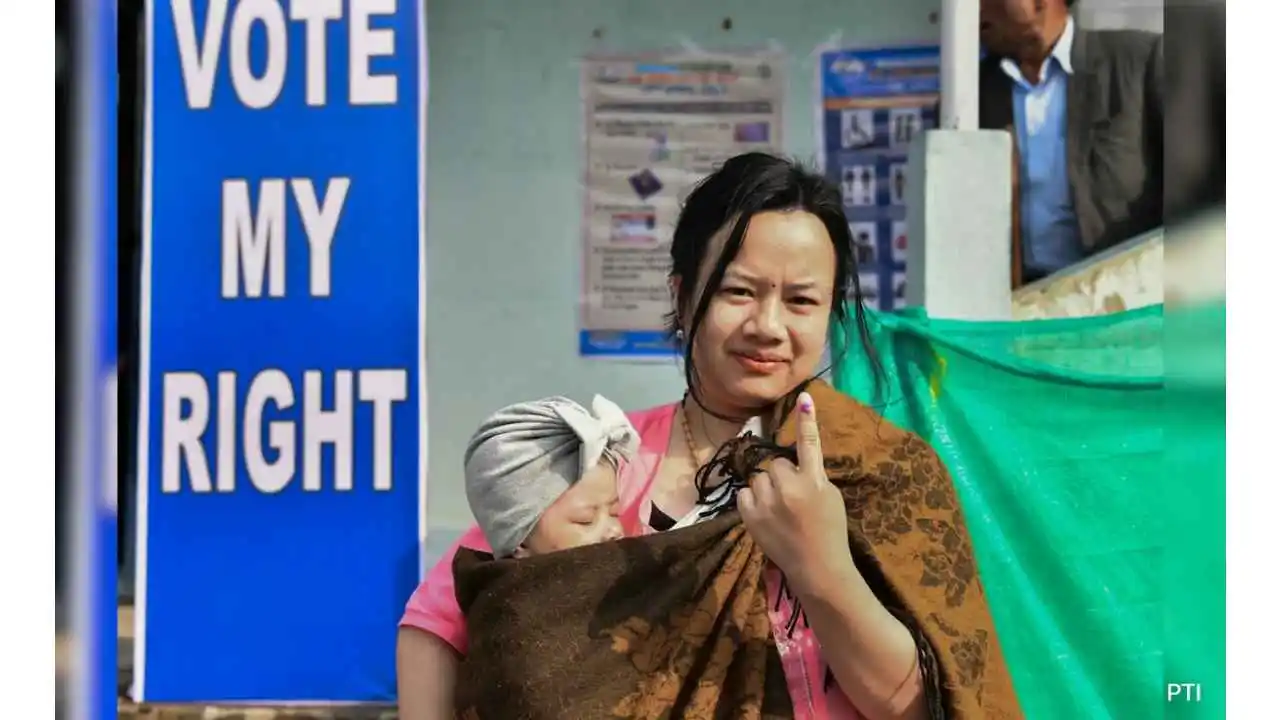
The first phase of voting for the 18th Lok Sabha elections started taking place in 21 states and Union territories on Friday. Nearly 40% voter turnout was recorded till 1pm across the states. Seats in Assam, Arunachal Pradesh, Chhattisgarh, Bihar, Maharashtra, Madhya Pradesh, Manipur, Mizoram, Meghalaya, Rajasthan, Nagaland, Tamil Nadu, Sikkim, Uttar Pradesh, Tripura, West Bengal, Uttarakhand, Jammu and Kashmir, Andaman and Nicobar Islands, Lakshadweep and Puducherry go to elections on Friday.
There has been a substantial increase in the voter turnout charts across the Northeast states, with Tripura leading at 53.04% until 1 pm, as per the data released by the Election Commission of India. Other northeast states like Manipur (46.92%) and Meghalaya (48.91%) are also witnessing high voter turnout. After Tripura, West Bengal is experiencing a high voter turnout of 50.96%.
Chennai recorded an average voter turnout of 34% as of 1 pm on Friday. According data released by the Election Commission of India, Chennai (North) recorded 35%, Chennai (Central) recorded 32.3% and Chennai (South) recorded 34%.
Over 33% voter turnout was recorded in the first 6 hours of voting on Friday in 12 parliamentary constituencies of Rajasthan. According to the Election Commission, voting started at 7 am amid tight security arrangements and 33.73 % voting took place till 1 pm. The highest voter turnout of 40.72 % was recorded in the Ganganagar Lok Sabha seat while Karauli-Dholpur saw the lowest turnout of 28.32 %. Jaipur recorded a poll percentage of 39.35 %.
Over 37 % voter turnout was recorded till 1 pm in the Lok Sabha election being held for five parliamentary constituencies in Uttarakhand on Friday. Elections began at 7 am and the five constituencies recorded an overall poll percentage of 37.33 % up to 1 pm. The Nainital-Udham Singh Nagar seat recorded the highest turnout of 40.46 %, followed by Haridwar with 39.41%, Pauri Garhwal with 36.60 %, Tehri Garhwal with 35.29 % and Almora with 32.29 %.
-

 Entertainment21 hours ago
Entertainment21 hours agoDo Aur Do Pyaar social media review: Social media users say Vidya Balan, Pratik Gandhi deliver standout performances in this adorable film
-
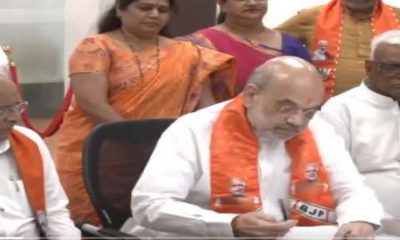
 2024 Lok Sabha Elections22 hours ago
2024 Lok Sabha Elections22 hours agoLok Sabha elections 2024: Amit Shah files nomination from Gandhinagar
-

 Entertainment23 hours ago
Entertainment23 hours agoYami Gautam starrer Article 370 releases on Netflix today
-
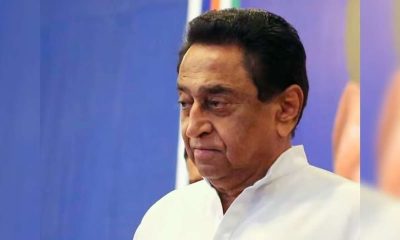
 2024 Lok Sabha Elections18 hours ago
2024 Lok Sabha Elections18 hours agoDeserted by key supporters, the Kamal Nath story looks set to wind to an end in Chhindwara
-

 Entertainment20 hours ago
Entertainment20 hours agoAditya Roy Kapur, Sara Ali Khan’s Metro In Dino to release this November
-
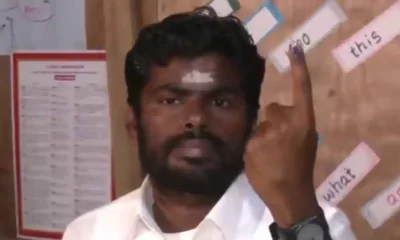
 2024 Lok Sabha Elections23 hours ago
2024 Lok Sabha Elections23 hours agoTamil Nadu BJP chief K Annamalai says party will sweep Karnataka and emerge victorious in Telangana, accuses DMK, AIADMK of influencing voters in Coimbatore
-

 2024 Lok Sabha Elections24 hours ago
2024 Lok Sabha Elections24 hours agoLok Sabha elections 2024: Newly married couple cast vote in Jammu and Kashmir’s Udhampur, video goes viral
-
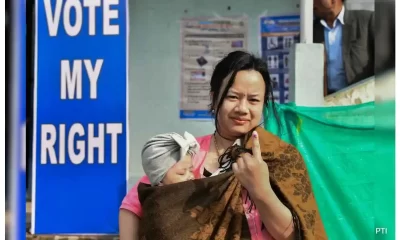
 2024 Lok Sabha Elections20 hours ago
2024 Lok Sabha Elections20 hours agoLok Sabha Elections 2024: Nearly 40% voter turnout till 1pm

